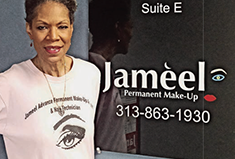Judge Rudy Reports : Health Care POA
By: Rudy Serra
Q: MY SISTER IS IN A LOCAL HOSPITAL and will probably go to Hospice. The senior apartment building where she lives won’t allow me to get into her apartment to get a few things she requested, such as her purse and keys. What should I do?
A : First, I’m sorry to hear you’re running into these difficulties. Often families are faced with a sudden emergency before a family member does much planning about pet care, prescriptions, mail and other details. The answers may vary depending on many factors. For example, in this case, you reported that the doctors claim your sister is “competent.” If so, then she can still sign documents that would allow you to enter her residence. If she has not signed a Health Care Power of Attorney, and is still competent, many hospitals have the forms. You might consider asking her to sign some of those important basic documents before it is too late to do so.
If a basic “permission slip” won’t suffice for the landlord, you could get limited power of attorney that allows you to enter the residence while your sister is hospitalized. A competent adult has the right to sign contracts, and even has the right to refuse medical care. The key is competence.
If a competent adult tells their landlord to allow a family member to enter their apartment, one can usually expect compliance. Sometimes a written authorization is desirable to help create a “paper trail” and spell out liability. And photographs may be a good way to help safeguard against pilfering.
If a person resides in a federally-subsidized or regulated building, they may change locks and prevent entry if a resident dies without instructions. Such facilities usually have the residents provide a list of family members to allow entry in case of emergency. They encourage residents to have wills and other documents ready in the event of an unexpected occurrence. Emergencies are often easier when the building manager and the tenant’s family already know one another.
If your sister is no longer competent, you need to get a doctor or psychologist to put it in writing. Once a treating doctor, or psychologist, concludes that a person is not competent to make their own decisions, then you could ask the Probate Court to appoint you guardian. Guardianship involves responsibility for the day-to-day care, medical decisions and so on. Sometimes a power-of-attorney includes a clause that nominates the person holding it to become guardian if guardianship is necessary.


